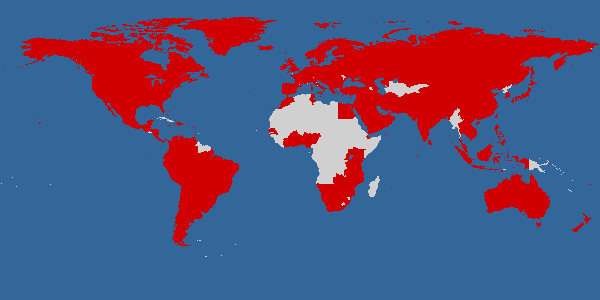Forces of Nature (2)
Listen to "Forces of Nature (2)"
Whether they are seen as acts of God, or as simple climate-related occurrences, natural events have always had a sizeable impact on military operations. At the small end of the scale are the little changes in terrain or weather that may affect a battle or a small war. For example, many armies have postponed their campaigns due to inclement weather conditions, and many militaries have suffered from rampant disease. On the other end of the scale are the times when nature has so much of an impact that the fate of an entire nation or civilization is decided upon it. In the words of Charles Darwin, these are times when “the war of nature” results in the downfall of one party and the rise of another.
Hopkins' The Great Killer
Diamond's Guns, Germs, and Steel
McCullough's 1776
Burton's Napoleon's Invasion of Russia
Tolstoy's War and Peace
George's Napoleon's Invasion of Russia
Military History Podcast is sponsored by Armchair General Magazine
Whether they are seen as acts of God, or as simple climate-related occurrences, natural events have always had a sizeable impact on military operations. At the small end of the scale are the little changes in terrain or weather that may affect a battle or a small war. For example, many armies have postponed their campaigns due to inclement weather conditions, and many militaries have suffered from rampant disease. On the other end of the scale are the times when nature has so much of an impact that the fate of an entire nation or civilization is decided upon it. In the words of Charles Darwin, these are times when “the war of nature” results in the downfall of one party and the rise of another.
- Colonization Smallpox: Rampant disease severely weakened the Aztecs and Incas, allowing small bands of Spanish conquistadors (led by Cortez and Pizarro, respectively) to easily overthrow two great empires.
- Revolutionary Wind and Fog: Heavy winds subsided after the Battle of Long Island, allowing American troops to evacuate and fight another day. Their retreat was concealed by a dense fog. Later, just before the Battle of Trenton, a heavy fog concealed the Americans long enough to conduct a surprise attack which greatly boosted the morale of the Continental Army.
- Russian Winter: Cold temperatures forced Napoleon to retreat after he failed to conquer Russia and find accommodations in Moscow. The lack of grass and unfrozen roads resulted in the destruction of up to 75% of Napoleon's Army as it marched back to France.
Hopkins' The Great Killer
Diamond's Guns, Germs, and Steel
McCullough's 1776
Burton's Napoleon's Invasion of Russia
Tolstoy's War and Peace
George's Napoleon's Invasion of Russia
Military History Podcast is sponsored by Armchair General Magazine




<< Home